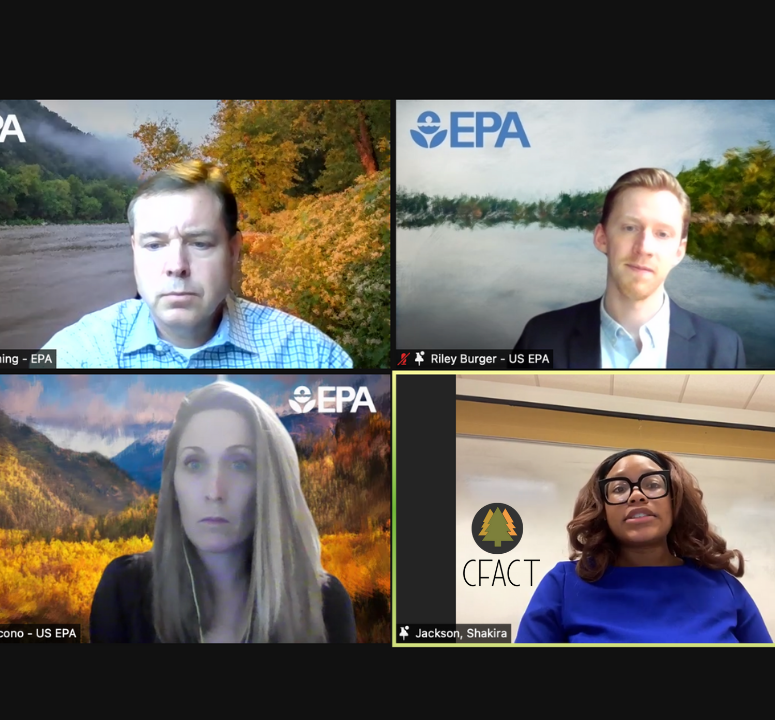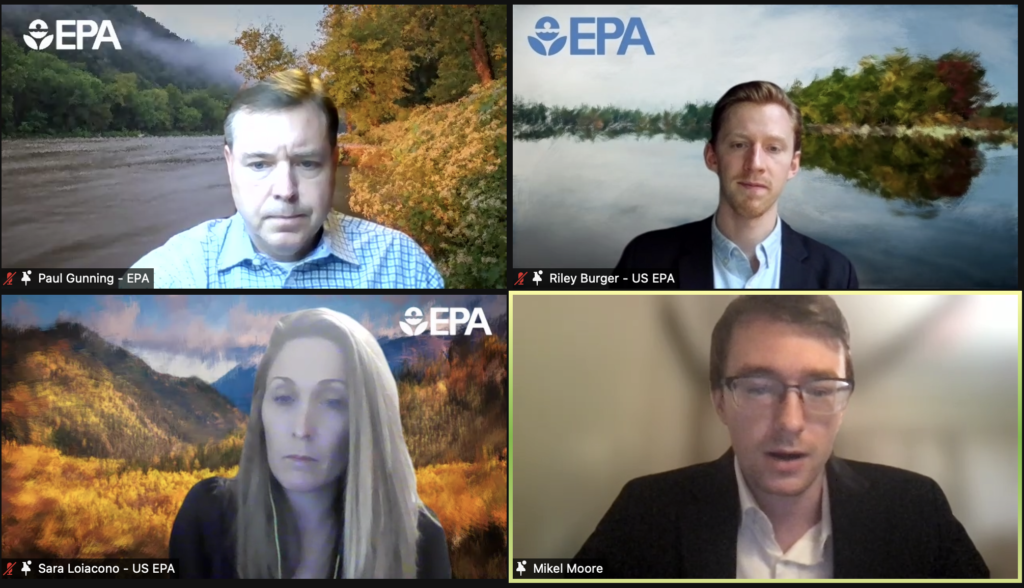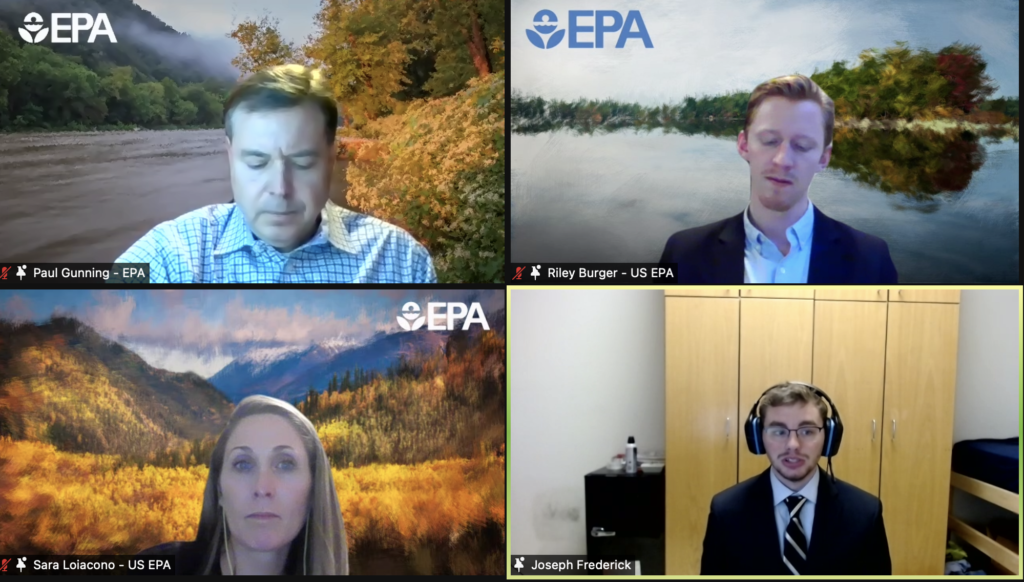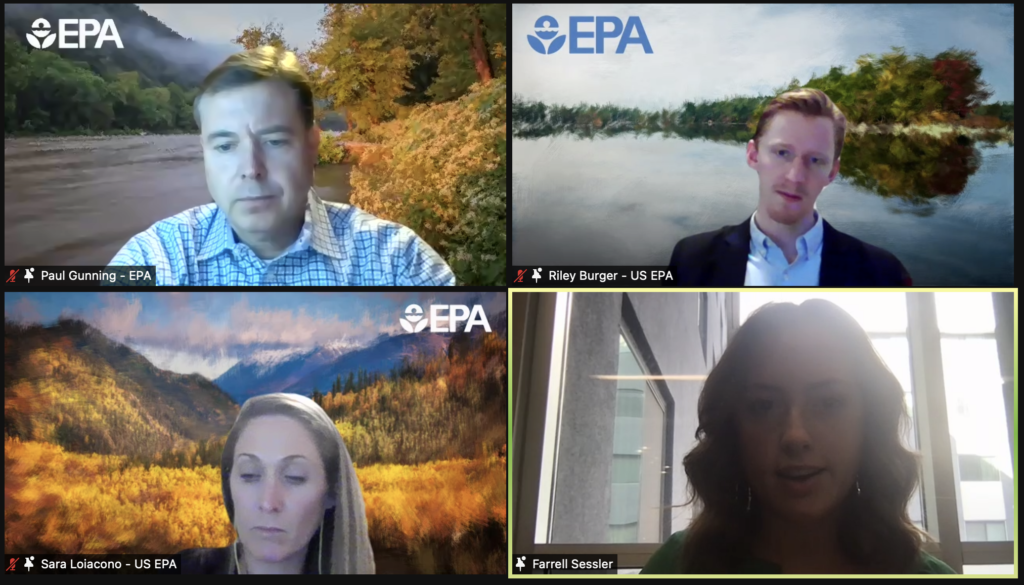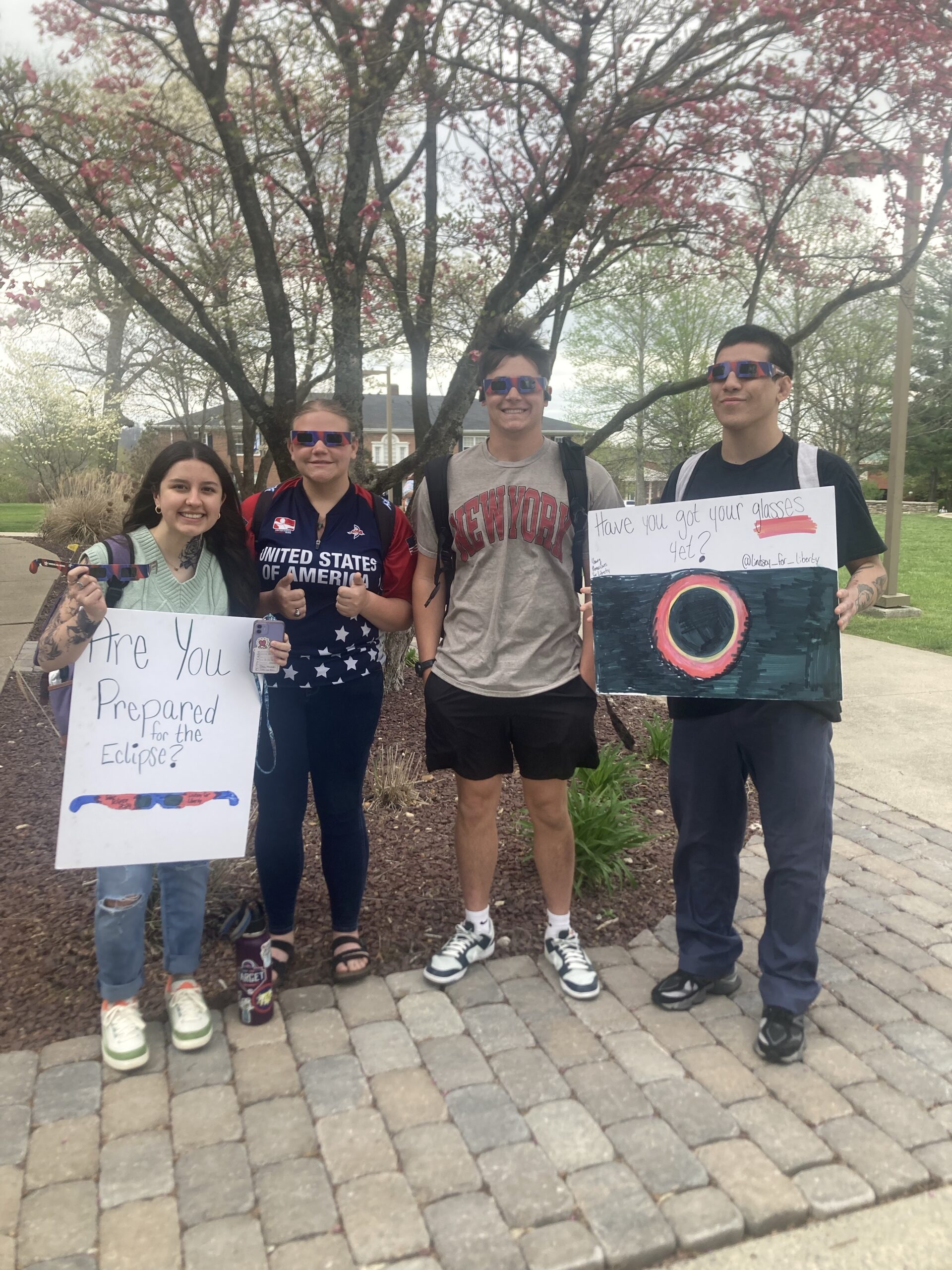Above: Shakira Jackson of the University of Pittsburgh, bottom right, testifies to EPA officials on behalf of CFACT during the hearing via Zoom.
Despite energy prices skyrocketing and inflation soaring, the Biden administration is continuing to push its costly climate agenda on America’s energy sector.
The Environmental Protection Agency (EPA) has proposed draft rules to try to curb primarily methane leaks from oil and gas production. It claims these regulations will improve air quality and help in the so-called fight against climate change. In reality, what they will do is continue to drive up the price of energy while doing nothing to improve the environment.
CFACT student leaders participated in EPA’s virtual public hearing via Zoom to voice their opposition and concern to these proposed rules. Four students, from different areas of the nation, voiced their opinions based on facts, not hype.
Shakira Jackson, a senior from the University of Pittsburgh, Mikel Moore; a law student out of the University of Houston; Joseph Frederick, a sophomore at the Catholic University of America in Washington DC; and Farrell Sessler, a freshman at Grand Canyon University in Arizona, all took part in the EPA hearing to testify on behalf of CFACT.
The new rule, titled “Controlling Air Pollution from the Oil and Natural Gas Industry,” would impose unnecessary regulations on energy producers to purportedly prevent methane from leaking at production sites. However, as CFACT’s Collegians pointed out in their testimony, reductions in methane leaks and emissions are already being achieved without additional burdensome government regulations.
“Methane that is leaked is just natural gas that isn’t sold by companies. The industry already has a strong incentive then, to limit these leaks to limit profit loss, and has clearly taken steps already. Methane emissions from U.S. oil and gas have dropped 12% since 2005, while oil and gas production increased by 80% and 51%, respectively, according to the Wall Street Journal,” testified Mikel Moore from the University of Houston.
Moore went on to explain that: “Oil and gas production – the main target of this rule, make up a mere 1.2% of U.S. oil and gas emissions. And by far the greatest source of methane is not oil and gas production, but natural sources, primarily wetlands,” according to CFACT Senior Policy Analyst Bonner Cohen.
Shakira Jackson from the University of Pittsburgh voiced concern with how the new rule would hurt federalism, saying: “This rule erodes [our] system of federalism by changing the way we regulate existing sources of emissions. That is supposed to be regulated by states under the Clean Air Act, but this regulation takes that authority away from states and forces a one-size-fits-all approach on states. It is saying that the same regulations for California should match those for Pennsylvania – states with different populations, different industries, and different priorities.”
Many of the other participants testifying, however, did not share the views of CFACT’s Collegians.
The hearing was dominated by leftist climate activists, all repeating the same talking points. Representatives from the Natural Resources Defense Council, the National Parks Conservation Association, Mom’s Clean Air Force, Medical Students for a Sustainable Future, and more, all testified in favor of the EPA’s proposed methane rule claiming the global warming crisis merits a quick phase out of all fossil fuels.
Not only that, a majority of those favoring the rule insisted EPA must even go one step further — that more enforcement is necessary to punish oil and gas producers who don’t comply with EPA’s new requirements.
Needless to say, CFACT’s students were a breath of fresh air in an atmosphere polluted by such extreme, leftist talking points!
Joseph Frederick from the Catholic University of America, cut right to the heart of the EPA’s flawed claims that these regulations would actually save people money, saying: “…this analysis ignores the economic hardship this rule will cause for countless families and young people, especially college students, like myself.”
Joseph went on to say: “[The price of] fuel oil has increased by 59.1% over the last year. Our government should not be taking action that is likely to further increase the cost of energy and services at this time. We need financial relief, not increased costs through more regulation.”
Farrell Sessler of Grand Canyon University echoed Joseph’s concerns, saying: “Prices are soaring right now. Inflation is its highest in 30 years; gas prices are at their highest levels in almost a decade. With costs for higher education also increasing over the last few years as well, the last thing I need as a student is for the EPA to take action that will continue to exacerbate price increases through increased regulatory burdens like this rule.”
CFACT’s Collegians brought clear, concise facts directly to the ears of EPA bureaucrats at this hearing. Our student leaders will continue to be a voice for sound science and liberty both on their campuses and in the halls of government in the months and years to come.
A full explanation of EPA’s methane rule can be found on EPA’s website here.
